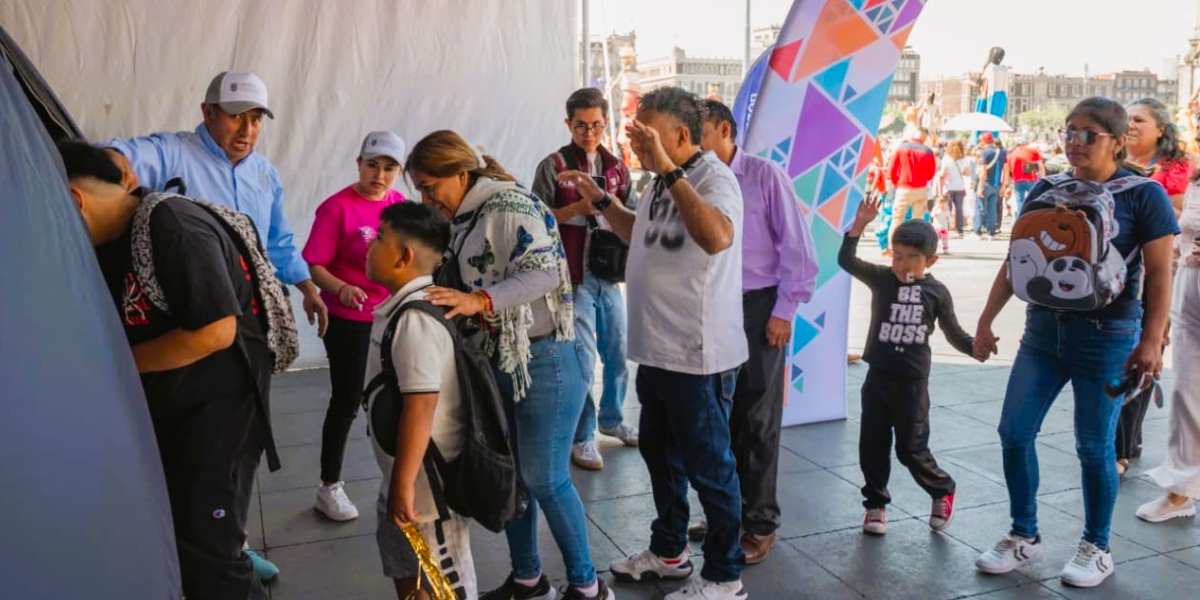
Reporter: Claudia Villalobos / Photos courtesy of DDCyT
The Institute joined the initiative led by SECTEI and PILARES CDMX to promote scientific curiosity
To spark curiosity among children and young people, as well as to strengthen partnerships between institutions, universities, museums, collectives, and scientific communities, the Zócalo of Science project was launched — an initiative that the Instituto Politécnico Nacional (IPN) joined to help transform a historic site into a space where knowledge takes center stage.
Promoted by the Ministry of Education, Science, Technology, and Innovation (SECTEI) and the Puntos de Innovación, Libertad, Arte, Educación y Saberes (PILARES) of Mexico City’s government, the project seeks to bring science, technology, and innovation closer to children, youth, and families across the city.
The initiative brings together educational institutions, museums, civil associations, and the private sector. The IPN is participating through the Luis Enrique Erro Planetarium and the Tezozómoc Museum, which will offer accessible and inclusive educational activities designed to spark scientific curiosity from an early age.
This interactive space will open to the public on the last Friday of every month, coinciding with the Technical School Council sessions of the Ministry of Public Education, to enrich children’s and youth education and complement their learning through the promotion of scientific and technological curiosity.
The IPN’s Secretary for Research and Graduate Studies, Martha Leticia Vázquez González, attended the inauguration alongside the Acting Director of Science and Technology Dissemination, Edmundo Omar Matamoros Hernández, and the Director of Research, José Nicolás Fernández García. Together, they reaffirmed the Institute’s commitment to promoting scientific outreach and fostering new generations of researchers.
During the opening ceremony, held on October 31, Vázquez González emphasized that spaces like this one “are essential to inspire young people to discover science as a meaningful part of their lives.”
As part of the project, the Zócalo of Mexico City is envisioned to become a permanent hub for science communication, where citizens can engage with various areas of science and innovation in an enjoyable and educational manner.